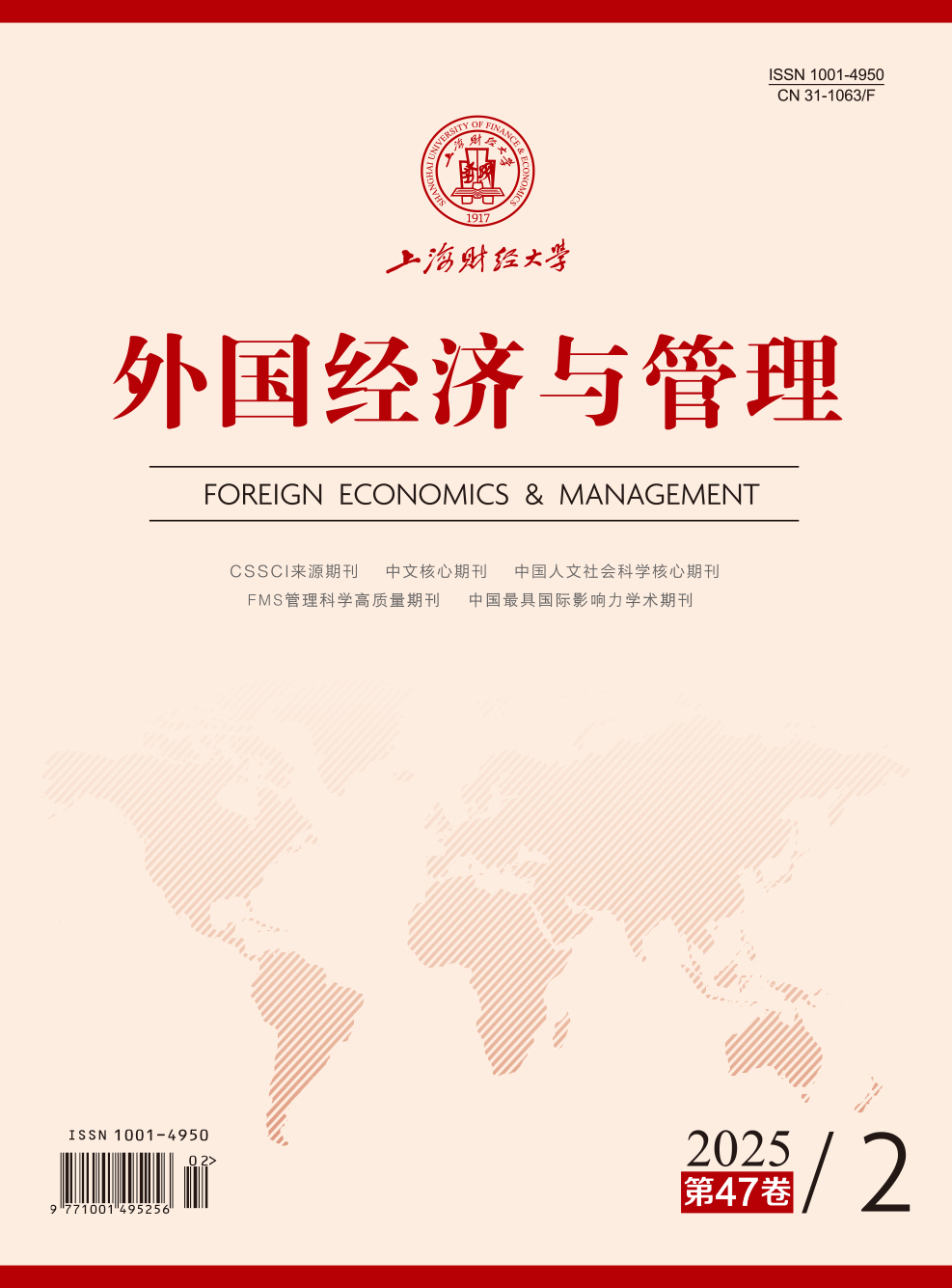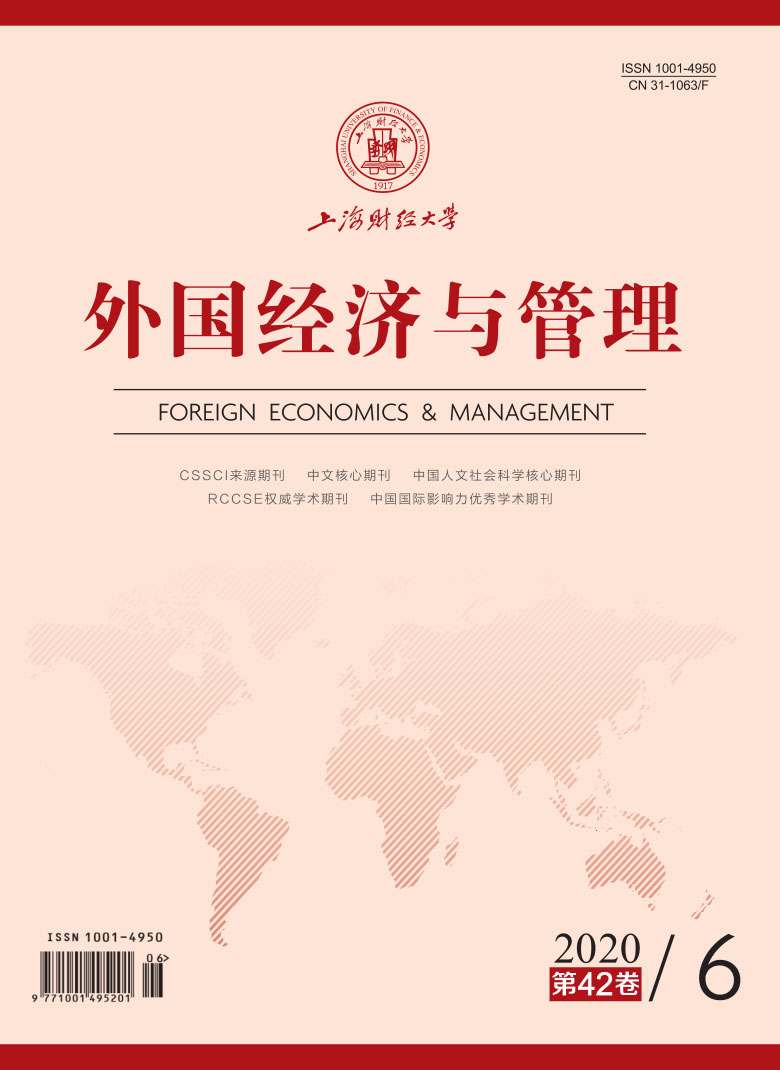[1]Liao Z J. Review on the research progress of long-term organization orientation[J]. Chinese Journal of Ergonomics,2015, (6): 59-64.
[2]Shi K, Zhou H M, Zhu H Q, et al. Construction of the evaluation model of healthy organization and the research prospect[J]. Science Research Management, 2016, (S1): 630-635.
[3]Wang J J, Zhao H J, Tan J, et al. Concept, structure, measurements and integrated research framework of work intensification[J]. Human Resources Development of China,2019, (9): 32-47.
[4]Wang L, Wu L. Task interruptions of human-computer interaction: New issues in the new environment[J]. Journal of Psychological Science,2012, (1): 88-92.
[5]Ahearne M, Mathieu J, Rapp A. To empower or not to empower your sales force? An empirical examination of the influence of
leadership empowerment behavior on customer satisfaction and performance[J]. Journal of Applied Psychology,2005, 90(5):
945-955.
[6]Bakker A B. An evidence-based model of work engagement[J]. Current Directions in Psychological Science,2011, 20(4): 265-
269.
[7]Barnes S, Brown K W, Krusemark E, et al. The role of mindfulness in romantic relationship satisfaction and responses to
relationship stress[J]. Journal of Marital and Family Therapy,2007, 33(4): 482-500.
[8]Baumeister R F, Bratslavsky E, Muraven M, et al. Ego depletion: Is the active self a limited resource?[J]. Journal of Personality
and Social Psychology,1998, 74(5): 1252-1265.
[9] Bennett A. Take five? Examining the impact of microbreak duration, activities, and appraisals on human energy and
performance[J]. PLoS One,2015, 10(1): 25-44.
[10] Berman E M, West J P. The effective manager takes a break[J]. Review of Public Personnel Administration,2007, 27(4):
380-400.
[11]Blasche G, Pasalic S, Bauböck V M, et al. Effects of rest-break intention on rest-break frequency and work-related fatigue[J].
Human Factors,2016, 59(2): 289-298.
[12]Boucsein W, Thum M. Design of work/rest schedules for computer work based on psychophysiological recovery measures[J].
International Journal of Industrial Ergonomics,1997, 20(1): 51-57.
[13]Brown K W, Ryan R M. The benefits of being present: Mindfulness and its role in psychological well-being[J]. Journal of
Personality and Social Psychology,2003, 84(4): 822-848.
[14]Chaikumarn M, Nakphet N, Janwantanakul P. Impact of rest-break interventions on the neck and shoulder posture of
symptomatic VDU operators during prolonged computer work[J]. International Journal of Occupational Safety and
Ergonomics,2017, 24(2): 251-259.
[15]Chong S H, Kim Y J, Lee H W, et al. Mind your own break! The interactive effect of workday respite activities and
mindfulness on employee outcomes via affective linkages[J]. Organizational Behavior and Human Decision Processes,2019.
[16]Dababneh A J, Swanson N, Shell R L. Impact of added rest breaks on the productivity and well-being of workers[J].
Ergonomics,2001, 44(2): 164-174.
[17]Edwards J R, Scully J A, Brtek M D. The nature and outcomes of work: A replication and extension of interdisciplinary workdesign
research[J]. Journal of Applied Psychology,2000, 85(6): 860-868.
[18]Eschleman K J, Madsen J, Alarcon G, et al. Benefiting from creative activity: The positive relationships between creative
activity, recovery experiences, and performance-related outcomes[J]. Journal of Occupational and Organizational Psychology,
2014, 87(3): 579-598.
[19]Fritz C, Ellis A M, Demsky C A, et al. Embracing work breaks: Recovering from work stress[J]. Organizational Dynamics,
2013, 42(4): 274-280.
[20]Fritz C, Lam C F, Spreitzer G M. It’s the little things that matter: An examination of knowledge workers’ energy
management[J]. Academy of Management Perspectives,2011, 25(1): 28-39.
[21]Fritz C, Sonnentag S. Recovery, health, and job performance: Effects of weekend experiences[J]. Journal of Occupational
Health Psychology,2005, 10(3): 187-199.
[22]Garland E L, Farb N A, Goldin P R, et al. Mindfulness broadens awareness and builds eudaimonic meaning: A process model
of mindful positive emotion regulation[J]. Psychological Inquiry,2015, 26(4): 293-314.
[23]Grant A M, Schwartz B. Too much of a good thing: The challenge and opportunity of the inverted U[J]. Perspectives on
Psychological Science,2011, 6(1): 61-76.
[24]Henning R A, Jacques P, Kissel G V, et al. Frequent short rest breaks from computer work: Effects on productivity and wellbeing
at two field sites[J]. Ergonomics,1997, 40(1): 78-91.
[25]Henning R A, Sauter S L, Salvendy G, et al. Microbreak length, performance, and stress in a data entry task[J]. Ergonomics,
1989, 32(7): 855-864.
[26]Hobfoll S E. Conservation of resources: A new attempt at conceptualizing stress[J]. American Psychologist,1989, 44(3): 513-
524.
[27]Hunter E M, Wu C. Give me a better break: Choosing workday break activities to maximize resource recovery[J]. Journal of
Applied Psychology,2016, 101(2): 302-311.
[28]Kim S, Park Y, Headrick L. Daily micro-breaks and job performance: General work engagement as a cross-level moderator[J].
Journal of Applied Psychology,2018, 103(7): 772-786.
[29]Kim S, Park Y A, Niu Q K. Micro-break activities at work to recover from daily work demands[J]. Journal of Organizational
Behavior,2017, 38(1): 28-44.
[30]Koopman J, Lanaj K, Scott B A. Integrating the bright and dark sides of OCB: A daily investigation of the benefits and costs
of helping others[J]. Academy of Management Journal,2016, 59(2): 414-435.
[31]Kühnel J, Zacher H, De Bloom J, et al. Take a break! Benefits of sleep and short breaks for daily work engagement[J].
European Journal of Work and Organizational Psychology,2017, 26(4): 481-491.
[32]Kumar S, Lechelt E C, Narayan Y, et al. Metabolic cost and subjective assessment of palletizing and subsequent recovery[J].
Ergonomics,2000, 43(6): 677-690.
[33]Lee K E, Williams K J H, Sargent L D, et al. 40-second green roof views sustain attention: The role of micro-breaks in
attention restoration[J]. Journal of Environmental Psychology,2015, 42: 182-189.
[34]Lim J, Kwok K. The effects of varying break length on attention and time on task[J]. Human Factors: The Journal of the
Human Factors and Ergonomics Society,2015, 58(3): 472-481.
[35]Lim V K G. The it way of loafing on the job: Cyberloafing, neutralizing and organizational justice[J]. Journal of
Organizational Behavior,2002, 23(5): 675-694.
[36]Marzuq N, Drach-Zahavy A. Recovery during a short period of respite: The interactive roles of mindfulness and respite
experiences[J]. Work & Stress,2012, 26(2): 175-194.
[37]McLean L, Tingley M, Scott R N, et al. Computer terminal work and the benefit of microbreaks[J]. Applied Ergonomics,
2001, 32(3): 225-237.
[38]Muraven M, Baumeister R F. Self-regulation and depletion of limited resources: Does self-control resemble a muscle?[J].
Psychological Bulletin,2000, 126(2): 247-259.
[39]Organ D W. Organizational citizenship behavior: Recent trends and developments[J]. Annual Review of Organizational
Psychology and Organizational Behavior,2018, 5: 295-306.
[40]Park A E, Zahiri H R, Hallbeck M S, et al. Intraoperative “micro breaks” with targeted stretching enhance surgeon physical
function and mental focus[J]. Annals of Surgery,2017, 265(2): 340-346.
[41]Pereira D, Iseli L, Elfering A. Health improvement and recovery experiences during vacation of school teachers: The benefit
of physical activity[J]. Occupational Health Science,2017, 1(1-2): 89-103.
[42]Rzeszotarski J M, Chi E, Paritosh P, et al. Inserting micro-breaks into crowdsourcing workflows[R]. Paper Presented at First
AAAI Conference on Human Computation and Crowdsourcing California, America, 2013.
[43]Schaufeli W B, Salanova M, González-Romá V, et al. The measurement of engagement and burnout: A two sample
confirmatory factor analytic approach[J]. Journal of Happiness Studies,2002, 3(1): 71-92.
[44]Scholz A, Ghadiri A, Singh U, et al. Functional work breaks in a high-demanding work environment: An experimental field
study[J]. Ergonomics,2018, 61(2): 255-264.
[45]Sonnentag S. Work, recovery activities, and individual well-being: A diary study[J]. Journal of Occupational Health
Psychology,2001, 6(3): 196-210.
[46]Sonnentag S, Fritz C. The recovery experience questionnaire: Development and validation of a measure for assessing
recuperation and unwinding from work[J]. Journal of Occupational Health Psychology,2007, 12(3): 204-221.
[47]Sonnentag S, Fritz C. Recovery from job stress: The stressor-detachment model as an integrative framework[J]. Journal of
Organizational Behavior,2015, 36(S1): S72-S103.
[48]Sonnentag S, Pundt A, Venz L. Distal and proximal predictors of snacking at work: A daily-survey study[J]. Journal of
Applied Psychology,2016, 102(2): 151-162.
[49]Speier C, Valacich J S, Vessey I. The influence of task interruption on individual decision making: An information overload
perspective[J]. Decision Sciences,1999, 30(2): 337-360.
[50]Taylor A F, Kuo F E. Children with attention deficits concentrate better after walk in the park[J]. Journal of Attention
Disorders,2009, 12(5): 402-409.
[51]Througakos J P, Beal D J, Green S G, et al. Making the break count: An episodic examination of recovery activities, emotional
experiences, and positive affective displays[J]. Academy of Management Journal,2008, 51(1): 131-146.
[52]Trougakos J P, Hideg I. Momentary work recovery: The role of within-day work breaks[J]. Research in Occupational Stress
and Well Being,2009, 7(3): 37-84.
[53]Tucker P. The impact of rest breaks upon accident risk, fatigue and performance: A review[J]. Work & Stress,2003, 17(2):
123-137.
[54]Van Hooff M L M, Baas M. Recovering by means of meditation: The role of recovery experiences and intrinsic motivation[J].
Applied Psychology,2013, 62(2): 185-210.
[55]Vijendren A, Devereux G, Tietjen A, et al. The Ipswich microbreak technique to alleviate neck and shoulder discomfort
during microscopic procedures[J]. Applied Ergonomics,2018, 83: 102679.
[56]Werner J M. Implications of OCB and contextual performance for human resource management[J]. Human Resource
Management Review,2000, 10(1): 3-24.
[57]Zacher H, Brailsford H A, Parker S L. Micro-breaks matter: A diary study on the effects of energy management strategies on
occupational well-being[J]. Journal of Vocational Behavior,2014, 85(3): 287-297.
[58] Zhu Z, Kuykendall L, Zhang X C. The impact of within-day work breaks on daily recovery processes: An event-based pre-
/post-experience sampling study[J]. Journal of Occupational and Organizational Psychology,2018, 92(1): 191-211.






 5684
5684  6736
6736

